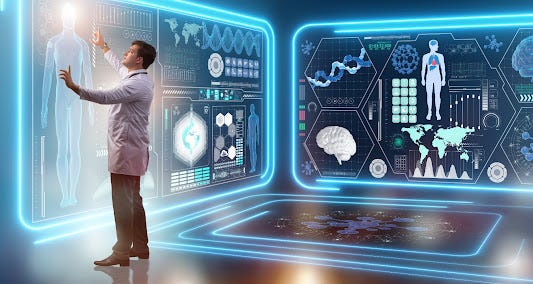Key Takeaways
- Healthcare technology transforms patient care by improving diagnosis accuracy, treatment efficiency and patient outcomes.
- Cutting-edge instruments and frameworks close the distance between patients and medical professionals, improve dialogue, and reduce mistakes.
- Emerging technologies like AI, telemedicine, and electronic health records (EHRs) are critical drivers of this transformation.
- Continuous advancements and strategic integration are necessary for the sustained improvement of healthcare services.
Introduction
In recent years, healthcare technology has made giant strides, significantly impacting patient care delivery. Integrating advanced technology in healthcare is reshaping the industry from enhancing diagnostic accuracy to streamlining treatment processes. For instance, innovative telemedicine solution Memphis TN, have bridged geographical barriers, ensuring patients receive timely and effective care regardless of location. This article delves into how technology revolutionizes patient care, providing insights and real-world examples of its benefits.
Enhanced Diagnostic Tools
One of the most significant advancements in healthcare technology is the development of enhanced diagnostic tools. Tools like advanced imaging systems, genetic testing, and real-time analytics have empowered healthcare professionals to diagnose conditions with greater precision and speed, ultimately leading to better patient outcomes. These advanced diagnostic tools increase the likelihood of effective treatment and recovery by identifying illnesses in their early stages.
Impact on Patient Care
Healthcare relies heavily on accurate and swift diagnosis of conditions. Enhanced diagnostic tools like MRI and CT scans help reduce misdiagnosis, facilitate early treatment, and limit chronic conditions’ progression. These tools are handy in detecting cancers, cardiovascular diseases, and neurological disorders, requiring timely intervention for successful treatment.
Electronic Health Records (EHRs)
Electronic Health Records (EHRs) are pivotal in modern healthcare systems. EHRs facilitate the easy exchange of patient information among healthcare providers, ensuring comprehensive and coordinated care. This digital shift from paper-based records reduces errors and boosts efficiency, allowing quick access to patient history and treatments.
Benefits of EHRs
EHRs streamline healthcare by centralizing medical data, reducing the need for repeated tests, improving communication between departments, and reducing medication errors. They also enhance patient safety by preventing drug interactions through automated alerts, resulting in more cohesive treatment strategies and faster decision-making processes.
Artificial Intelligence in Healthcare
Healthcare technology is powered by artificial intelligence (AI), with applications ranging from personalized medication to predictive analytics. For instance, AI algorithms can analyze vast amounts of data to predict disease outbreaks or identify potential patient health risks. Furthermore, AI-powered systems assist in developing tailored treatment plans that cater to individual patients’ needs.
Predictive Analytics and Personalized Medicine
Predictive analytics forecast health issues using historical data and trends. AI-guided personalized medicine tailors treatments to patients’ genetics, lifestyle, and other factors, improving treatment efficacy. This approach is promising for managing chronic diseases, such as cancer treatment, where AI analyzes genetic markers to identify effective chemotherapy regimens.
Robotic Surgery and Automation
Robotic surgery offers precision and control beyond human capabilities. Surgeons may carry out intricate operations using less invasive methods and increased accuracy, which shortens recovery periods and enhances patient outcomes. Additionally, automation in healthcare processes, like medication dispensing and administrative tasks, streamlines operations and minimizes human error.
Advancements in Surgical Techniques
Robotic surgery has revolutionized heart surgery, knee replacements, and organ transplants by enabling surgeons to make precise cuts and movements beyond human capabilities. This results in smaller incisions, reduced blood loss, quicker recovery, and fewer complications. Automated systems in hospitals also handle medication administration, reducing human error.
Improving Patient Engagement
Healthcare technology platforms enhance patient engagement by providing easy access to medical information and enabling better communication with healthcare providers. Mobile health apps, wearable devices, and patient portals empower individuals to manage their health actively. This proactive approach leads to better patient compliance and health outcomes.
Tools for Better Engagement
Mobile health apps and patient portals encourage active participation in healthcare by providing reminders, tracking fitness metrics, and virtual health coaching. These tools also enable patients to view test results, schedule appointments, and communicate with doctors, leading to better health outcomes. This collaborative approach to healthcare management encourages informed and engaged patients, leading to more diligent treatment follow-up.

